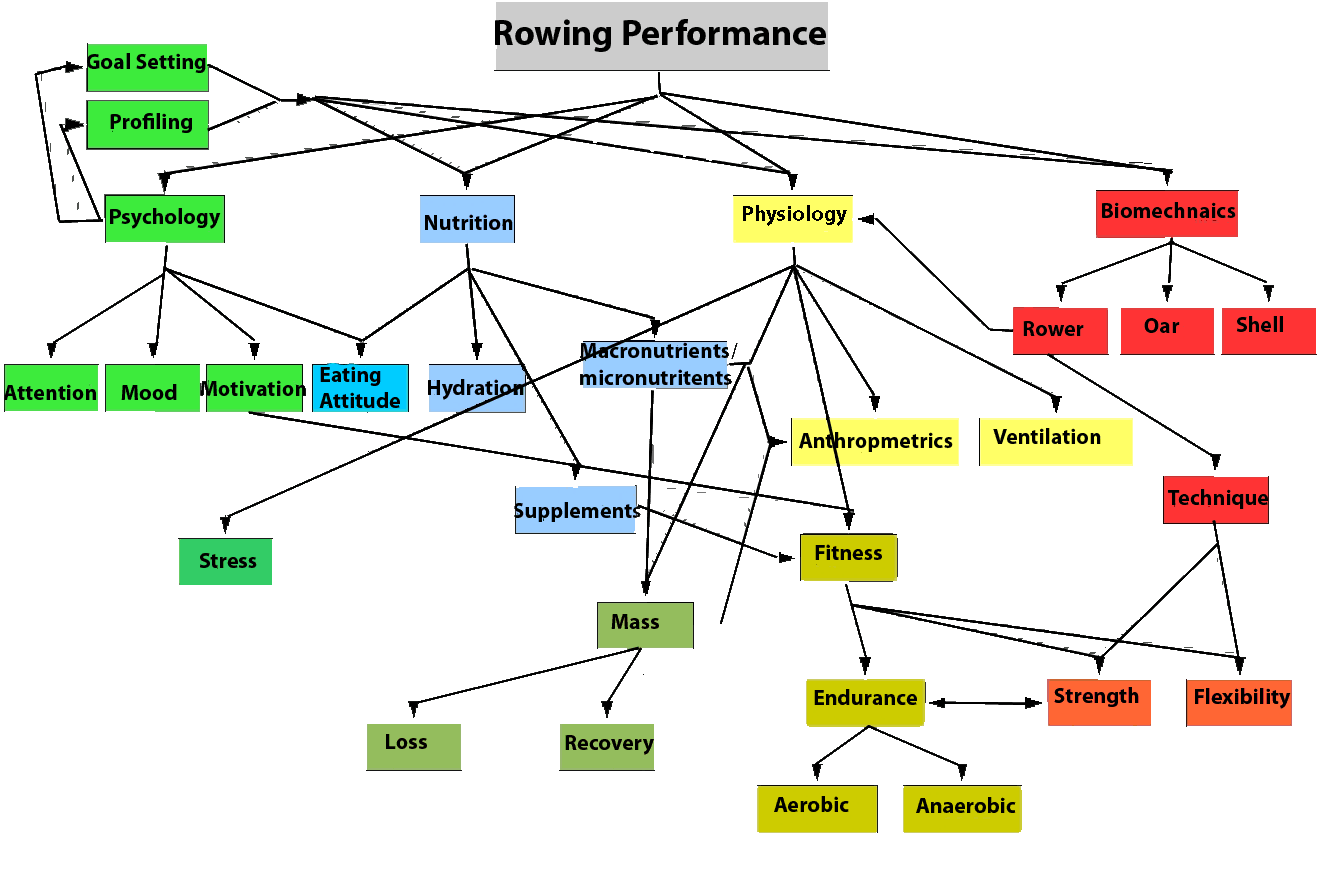

Sports science is a useful tool in all sports, rowing no excpetion to this. Using current research in areas of physiology, nutrition, biomechanics and psychology athletes and coaches are able to get the most out of their training and lifestyle to achieve the greatest performance benifits.
Below is an outline of the various approaches to sports science, and the factors upon rowing for each area, all linking together to display them joining together. Below that are some useful key applications for within rowing.

Biomechanics applies almost entirely to rowing technique, follow the guides within the coaching sections of the website for a greater understanding of the biomechanics to achieve more efficient rowing strokes.
Profiling - By assessing what traits and skills are important to your personal or your athletes rowing development, it is possible to rate each attribute out of 10 and see where there maybe areas for improvement.
Goal Setting - knowing the areas for improvement will help to set 'outcome' 'performance' and 'process' goals, these must be Specific, Measurable, Achievable, Realistic, and a certain Type helping you to reach your SMART goals.
Imagery - When in a relaxed state focus and run through within your mind each part of the stroke, breaking it down into all of the senses (touch, sound, smell etc.). Being able to take each stroke in your mind will help you to take them for real. It is a useful tool whilst waiting for the start of the race and will help to relax.
Motivation - It is important to keep a varied training programme to avoid bordem and not work yourself or your athletes too hard so they do not burn out and are still interested and keep to train
Back to Top - Add to favorites - Contact - - - - - Home - Physiology - Coaching - Gallery - News - About